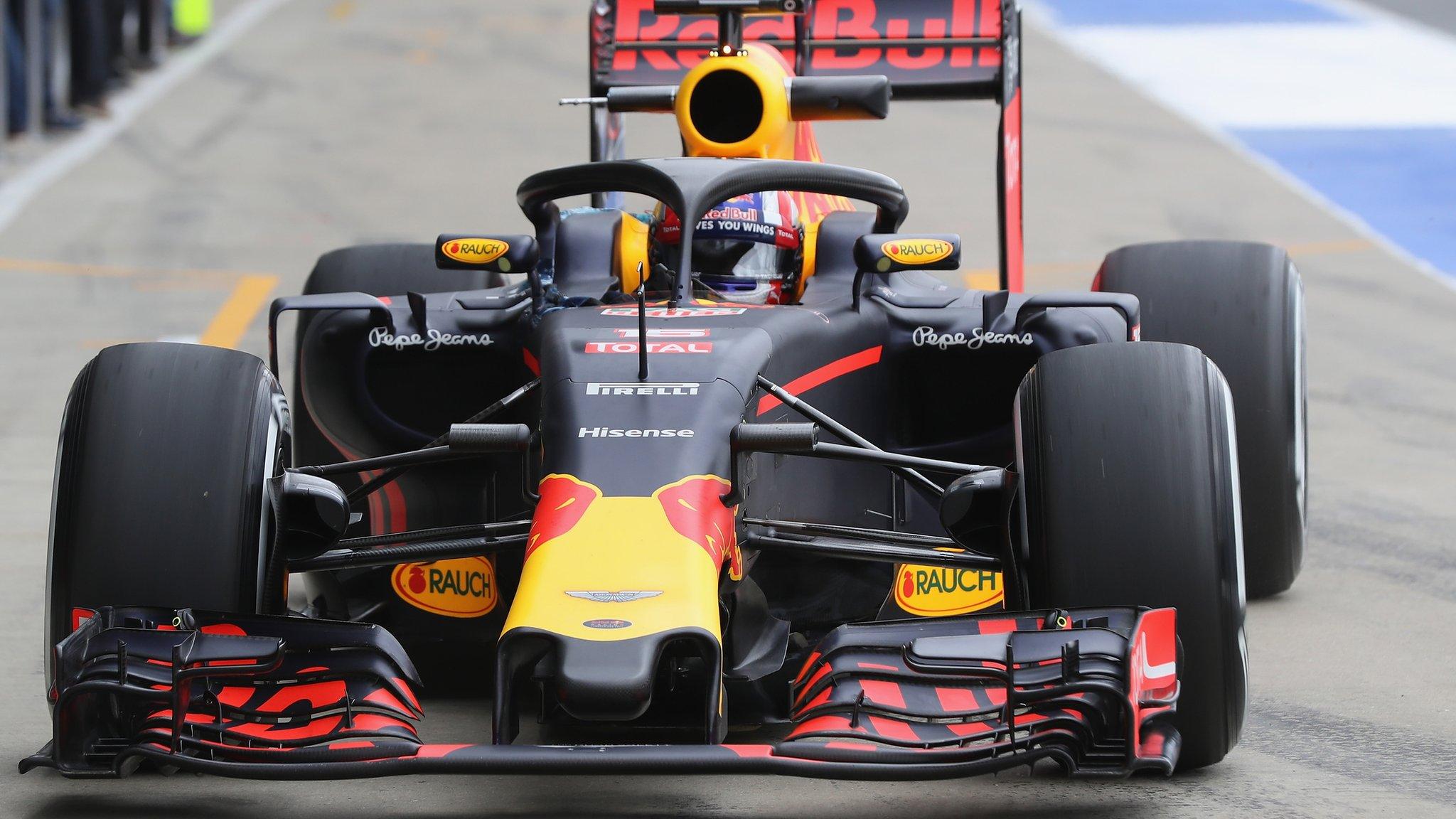F1 safety debate needs balance says Ross Brawn as screen preferred to halo
- Published
- comments
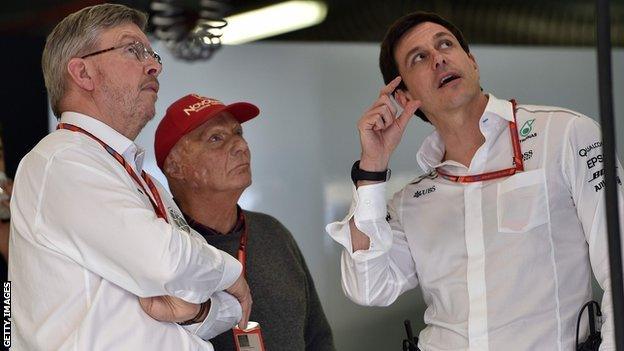
Ross Brawn (left, pictured with Niki Lauda and Toto Wolff of Mercedes) says F1 needs to "find the correct balance"
Ross Brawn says F1 is trying to find a "balance" between safety and the sport's essence as it moves towards driver head protection.
The ex-Mercedes boss, who has taken on a management role with F1's new owners, said: "I don't think F1 can be too safe but it has to retain its identity."
Governing body the FIA has committed to extra frontal driver head protection in 2018 but its form is unclear.
It has prioritised research on a clear screen over the controversial 'halo'.
The 'halo' - a metal structure that arches over the driver's shoulders and meets in a central point at the front of the cockpit - is the only device that has been proved to work in protecting drivers from large flying debris.
A screen system trialled by Red Bull last year failed its FIA tests and research on a new 'shield' system is still in its infancy.
Despite this, the FIA, F1 Group and leading teams this week agreed to focus on the 'shield'.
Brawn said: "The balance in this case is [the sport] retaining its identity and doing what we can on safety. I think we are just trying to find that ideal path through that.
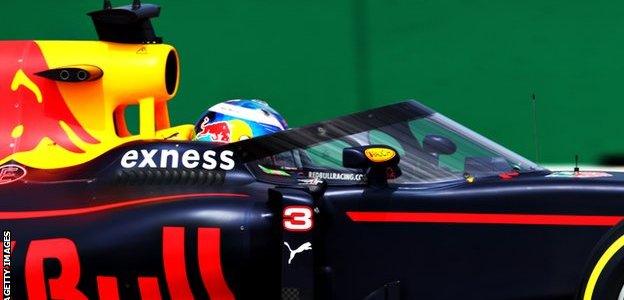
Formula 1 decided this week to focus research on a transparent 'shield' device
"I don't think any of us want the sport to be less safe than it can be.
"There is no doubt it would be safer if we covered the wheels and cockpit but no-one feels that is F1, so it is finding that correct balance. Anything we can do to improve safety which doesn't change the nature of the sport we should be doing."
The F1 managing director of motorsports, talking in an exclusive interview with BBC Sport, added that he was starting the process of guiding the next stage of the sport's development.
Among the many items on his agenda is to come up with a new engine for when the current turbo hybrid formula expires in 2020.
The 1.6-litre turbo hybrids used in F1 have had a revolutionary effect on thermal efficiency - improving the percentage of energy turned into power from 29% to 50% - and were backed by the car manufacturers in F1 because they help with road-car research. But they are expensive and have proved unpopular with fans because of their perceived unattractive noise.
"The manufacturers recognise [the new engine] has to be something the fans want," Brawn said. "This is not a sport in a vacuum. If we don't have the fans and enthusiasts watching F1 then there is no point as a manufacturer being involved.
"Winning a championship in a vacuum is of no interest to anyone. The manufacturers are trying to juggle a number of objectives.
"All of them have said they want a more economic model in the future, which is a good sign. And I think that they all recognise that while this engine is a miracle of engineering, it hasn't captured the fans' imagination and that needs to be a factor that is prioritised in the new engine."
He added that his bosses at the F1 Group were hopeful of securing new races, particularly in the USA.
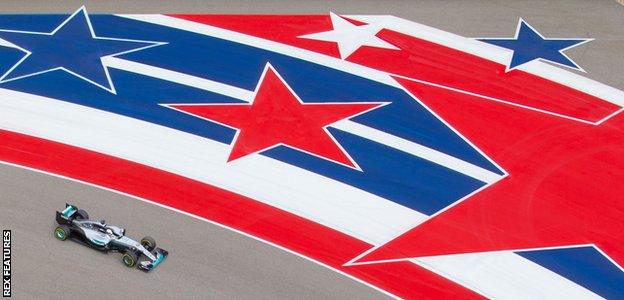
The United States Grand Prix in Austin, Texas has been on the F1 calendar since 2012
"North America has always been an important area for F1 and an area not as strong as we would want it to be," Brawn said.
"We have a great race in Austin but we have scope for more, but it has to be quality, whatever we do.
"There are maybe one or two opportunities for races that I don't think will raise the standard of F1 but there are some exciting opportunities in North America and other places that we are going to do properly.
"We are not going to rush them in. They will be properly studied, properly prepared, properly organised and so strong races in the future."
Asked where the new races might be, Brawn said: "The obvious places - New York, Vegas, Miami, Long Beach. A number of names have been mentioned but I wouldn't like to be specific about what we're doing because its too early to say."
- Published27 April 2017
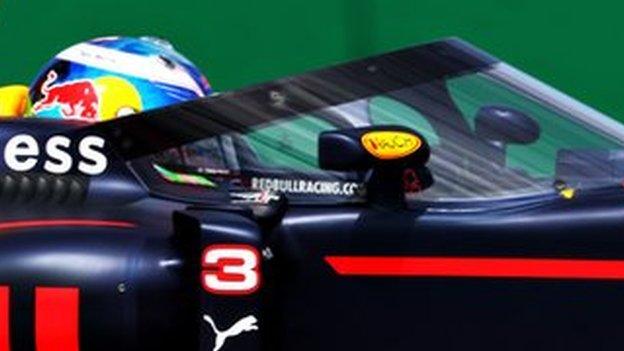
- Published27 July 2016
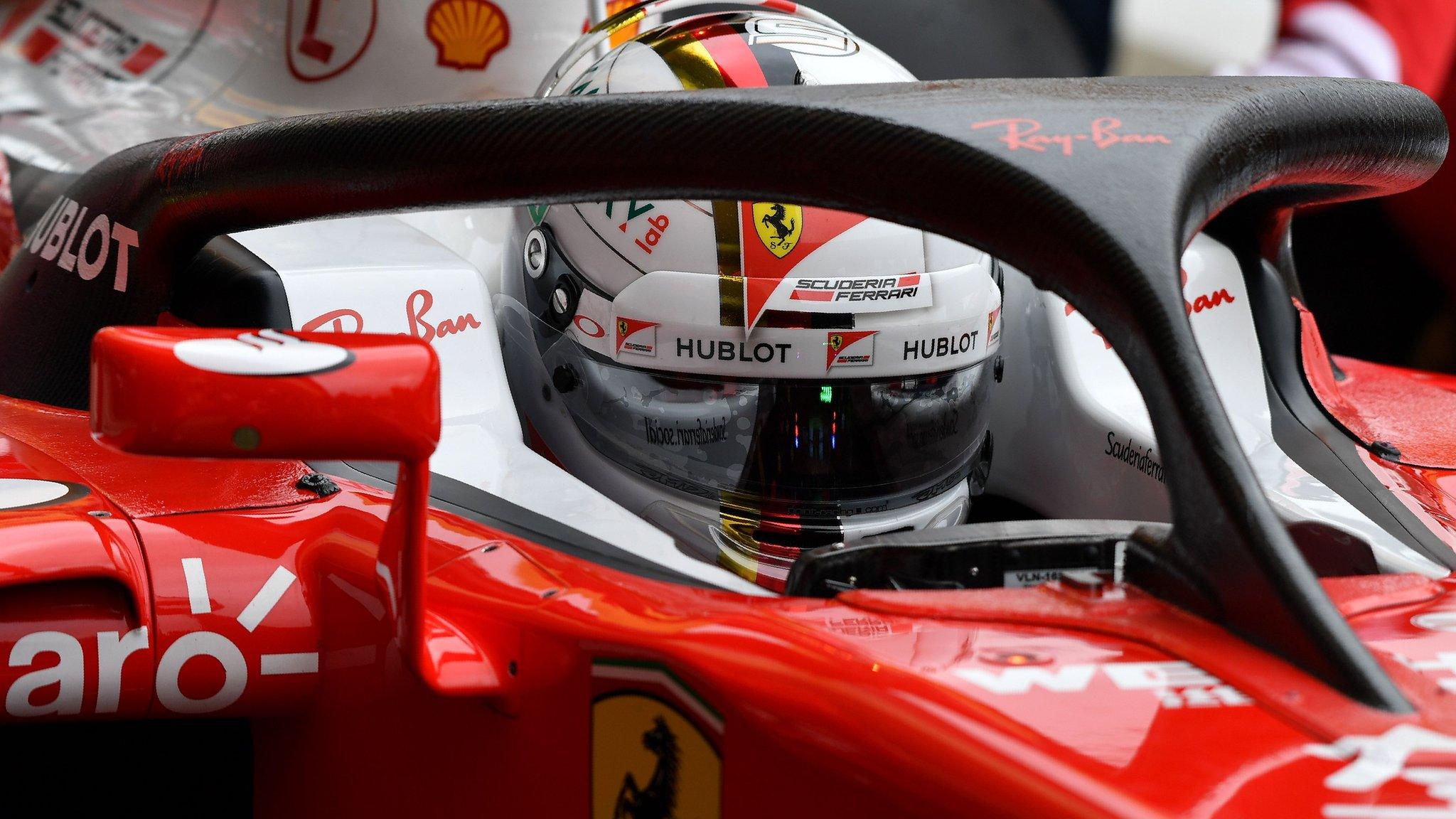
- Published28 July 2016
